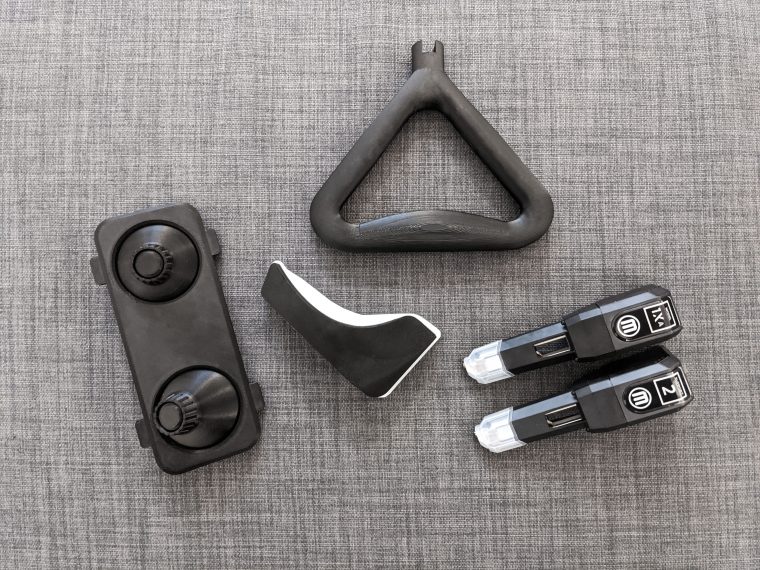MakerBot Continues to Rapidly Expand Industrial-Grade Materials for the METHOD Platform
MakerBot, a global leader in 3D printing and subsidiary of Stratasys (Nasdaq: SSYS), continues to rapidly expand its METHOD materials portfolio with PC-ABS and PC-ABS FR. The addition of these two new materials brings the number of MakerBot materials for METHOD to 10, underscoring the company’s efforts to deliver a wider range of industrial-grade solutions to open more additive manufacturing applications for engineers.
PC-ABS (polycarbonate-acrylonitrile butadiene styrene) has high heat resistant properties and high tensile strength, which make it optimal for use across automotive, rail, and electronics industries. PC-ABS FR is a flame-retardant material that meets the UL-94 V0 standard, an important fire safety specification. The materials are ideal for applications such as automotive and rail parts, LCD panels, appliances, electronics enclosures, handles, adapters and chargers, portable handheld devices, and cosmetic covers. The addition of polycarbonate to ABS delivers higher impact strength and heat resistance than the standard ABS material, and is used frequently in injection molding.
PC-ABS prints more successfully with an enclosed heated chamber, consistently delivering high-quality parts. Parts printed on a desktop 3D printer with only a heated build plate are susceptible to temperature variations that can cause part deformation and lower part strength. MakerBot increased METHOD X’s maximum enclosed chamber temperature at the build plane from 100°C to up to 110°C to ensure superior part accuracy and interlayer adhesion.
“With its excellent thermal and mechanical properties, PC-ABS is a widely-used engineering material for applications that require high impact and heat resistance. METHOD X is the only printer in its price class with a heated chamber that reaches up to 110°C on the build plane, making it ideal for printing PC-ABS,” said Johan-Till Broer, VP of Product Development, MakerBot. “PC-ABS is another example of METHOD’s ability to support real engineering-grade materials that print more successfully with a heated chamber. As a result, this improves the success rate and efficiency of the prototyping process, reducing time to market for new products.”
As end use, injection molded parts are commonly made of PC-ABS, it is important for engineers to prototype their designs with a material as close to their end use part as possible. This is especially critical for functional prototyping to ensure the prototype checks are representative. Combined with METHOD’s industrial 3D printing features, PC-ABS enables engineers to achieve parts with high dimensional accuracy and repeatability. The material can also be printed with SR-30 soluble supports, allowing customers to produce complex geometries with intricate or deep internal cavities or overhangs.
MakerBot has an extensive offering of engineering-grade materials for the METHOD platform, which also includes ABS, ASA Nylon, PETG, Tough, PLA, SR-30, PVA and a diverse host of qualified third-party materials from leading filament suppliers.
PC-ABS and PC-ABS FR are expected to ship beginning in May 2020, and will be available in black.
www.makerbot.com

 Deutsch (Germany)
Deutsch (Germany)  Polski (PL)
Polski (PL) 








